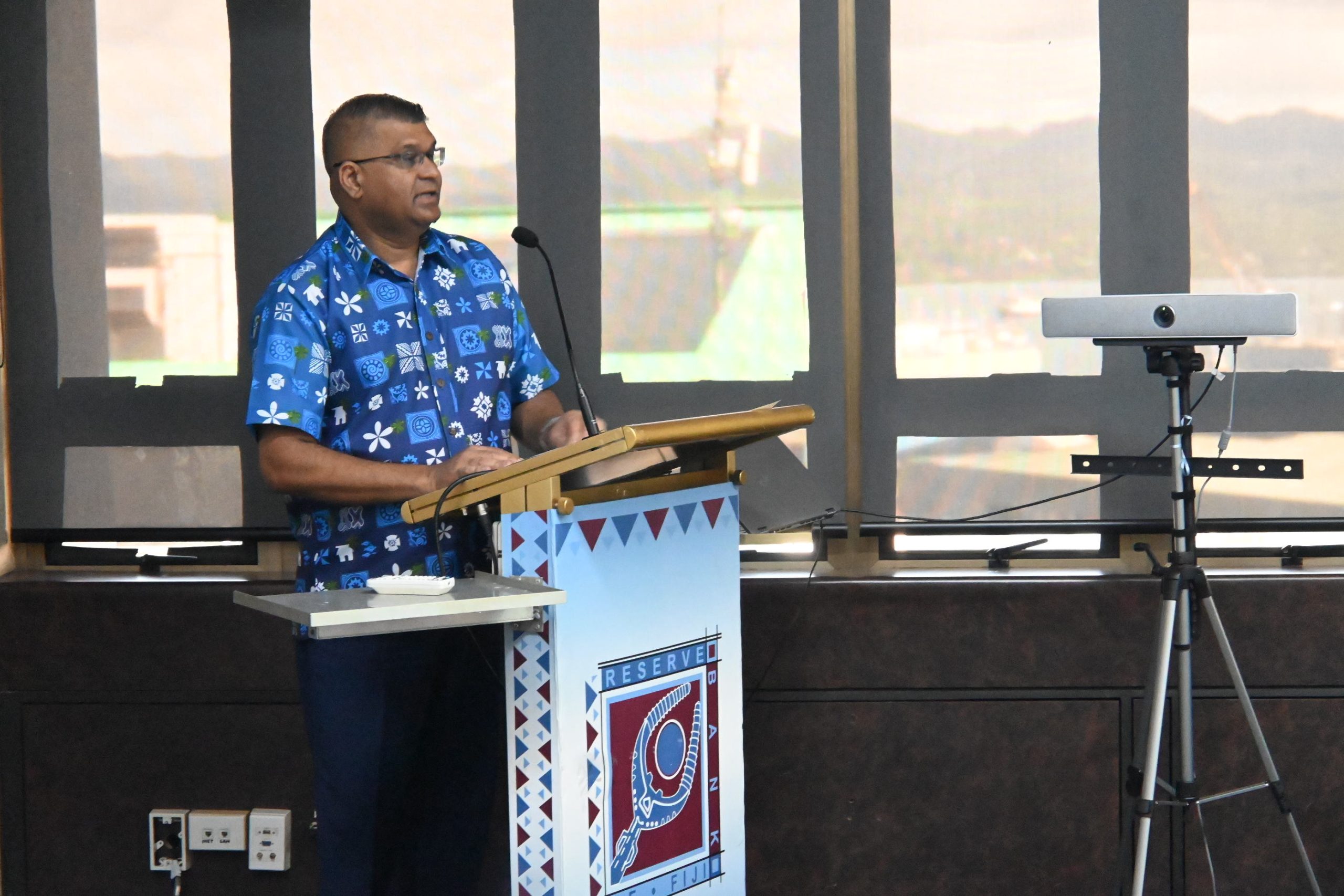RESERVE Bank of Fiji (RBF) Governor Ariff Ali said he does not believe the unfolding tariff war between the United States and the rest of the world will directly affect Fiji.
The US under President Donald Trump unleashed its promised tariff measures this week, with a 25 percent duty on goods from Mexico and Canada and double duty on goods from China, setting off retaliatory actions from the three countries.
“Right now, nothing has been said about Fiji so I don’t think this trade war will have any direct impact on Fiji at this stage,” Mr Ali told this newspaper on Tuesday.
“I think what US is focusing on is countries that have very large trade deficit, so Fiji in that terms is very small and I don’t think we’d be affected directly.”
The central bank at its board meeting last week said it was keeping a close watch on “emerging external risks” to its favourable outlook on the economy in light of “rising geopolitical uncertainty, increased trade tariffs and their impact on global activity and Fiji’s trading partners”.
Mr Ali said at this point, he does not see the US tariff having any significant impact on Australia and New Zealand, Fiji’s major trading partners and major source of tourists.
“The US hasn’t said anything major about tariff with Australia and New Zealand,” he said.
“I think right now the Australian and New Zealand economies are still coming from very high inflation and they’re still working on that.
“Both their central banks have reduced interest rates to stimulate the economy and hopefully that would bring in more positive things, for example a 50 percent reduction in interest rates meaning people with mortgage can put a bit more money in their pockets so hopefully they can take a holiday to Fiji.”
Mr Ali’s views align with those of ANZ international economists Kishti Sen and Tom Kenny, who, in their analysis released early last month, said they think Fiji will be spared from higher tariffs given its relatively small size.
However, last week, Westpac senior economist Justin Smirk said the US was considering looking at reciprocal tariffs and targeting countries that charge value added tax (VAT), and if it does, will increase the likelihood of Fiji coming under the US tariff radar.
The Fiji Bureau of Statistics’ latest trade merchandise data noted US was fourth on Fiji’s top five import source countries last November and ranked second on the list of top five export destinations.
Fiji imported $27.1million worth of goods from the US during the month and exported $31.6m; and exports were dominated by mineral water, tuna and cereal products.



